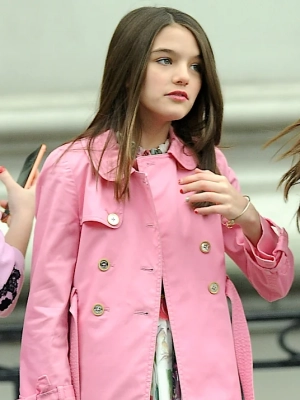 If there's ever a person born as entertainer, then it would be Sarah Brightman. Starting from the tender age of three, she has attracted attention with her bodily movement. The girl who was born to Grenville and Paula Brightman on August 14, 1960 spent her very young age dancing in local festivals in Berkhamsted, London and entering competitions that she frequently won. Soon enough, it was a clear future for the toddler Brightman who attended Royal Ballet Academy and got praised by her teacher. Beside attending Ballet lessons, Brightman was also a keen listener to music. There was a balance between pop and classical in her play list, which later on would become a distinctive trademark to determine her genre. She was also an active child in Berkhamsted's church choir that often chanted Gregorian songs but the attention for her solo voice was only audible several years later when a school performance opened up the 'hidden talent'. She sang a song from "Alice in Wonderland" and her mother who was in the audience describe the raising moment. "It was so beautiful, I felt sick," Paula said. "She hit such high notes that the audience was stunned. They completely fell for her. It was absolute magic, and obvious, from that moment on, that singing would be her calling."
If there's ever a person born as entertainer, then it would be Sarah Brightman. Starting from the tender age of three, she has attracted attention with her bodily movement. The girl who was born to Grenville and Paula Brightman on August 14, 1960 spent her very young age dancing in local festivals in Berkhamsted, London and entering competitions that she frequently won. Soon enough, it was a clear future for the toddler Brightman who attended Royal Ballet Academy and got praised by her teacher. Beside attending Ballet lessons, Brightman was also a keen listener to music. There was a balance between pop and classical in her play list, which later on would become a distinctive trademark to determine her genre. She was also an active child in Berkhamsted's church choir that often chanted Gregorian songs but the attention for her solo voice was only audible several years later when a school performance opened up the 'hidden talent'. She sang a song from "Alice in Wonderland" and her mother who was in the audience describe the raising moment. "It was so beautiful, I felt sick," Paula said. "She hit such high notes that the audience was stunned. They completely fell for her. It was absolute magic, and obvious, from that moment on, that singing would be her calling."
True to what her mother was saying, Brightman was involved in more and more performing arts. She was cast in Piccadilly Theater's production of "Albert and I" and strutted along the catwalk to become a model. Her first public break came when Pan's People, a dance troupe, decided to let her join. The all-girl group were featured as the dancers on BBC's high-rated show, Top of the Pops. Showing a commitment in the showbiz, Brightman quit her school years and concentrated on her newly-built career. A choreographer named Arlene Phillips invited her to audition for Hot Gossip which is another dance troupe but with more raunchy movements that required sex appeal from its members. Despite critics, Hot Gossip became a popular culture that many would later imprint. They released a single called "I Lost My Heart to a Starship Trooper" that peaked at #6 on U.K. Singles chart. In the meantime Brightman also recorded her solo demos and released several singles that led her being signed to Whisper Records. It was also during this time that she met music manager Andrew Graham Stewart who was seven years her senior. They were married while Brightman was only 18 but her career was not stalled by the bond.
After leaving Hot Gossip, Brightman auditioned for "Cats" and that was when she came face to face to composer Andrew Lloyd Webber. The requirement to become a cast beside the ability to dance and sing was to be different. Sarah fit perfectly to this with her rendition of "Don't Rain On My Parade," and "Don't Cry For Me Argentina." Few months later Brightman got the call to appear in the production and danced with what people witnessed as "sensuality and determination". However, Brightman also realized that she needed to enhance her vocal skill that she took lessons from the experts such as Elizabeth Hawes and Ellen Faul. A year in Cats with her voice barely recognized, she left the show to start new on "Nightingale". It was a production that received a rave review, prompting Webber to spare his time watching the show. Stunned by the remarkable voice Brightman possessed that slipped out of his mind while she was in Cats, Webber drew himself closer to the rising star. It was soon a media frenzy when their romance became public, particularly since both were still married at that time. Brightman was divorced from her husband Stewart while Webber also separated from wife Sarah Hugill to be with his new love.
The bond between Brightman and Webber not only resulted in a marriage in 1984 but also many more musical ventures that shook the theatrical industry to the very core. Their early joint projects include "Him" and "Song and Dance" where Brightman took the major roles. By the time, Brightman was already deemed a new "star" who successfully tackled "Pie Jesu" and sold the single to more that 25,000 copies in the first day only. It was also the same song that prompted Webber to compose for "Requiem Mass" that garnered Brightman her first Grammy nomination, "Best New Classical Artist". However, her big break was yet to come. Extending the idea of reviving a small play called "The Phantom of the Opera" to husband Webber, she struck a major role as Christine Daae. In fact, the role was adjusted so well to Brightman's character and voice range that it was virtually and literally a character made solely for Brightman. When it opened at Majesty's Theater in October 1986, the musical became a huge success that it required Brightman to perform averagely eight shows per week. When the "Phantom" was brought to Broadway, it received a stumble block since The American's Actor's Equity refused to let Brightman play the role of Daae. The union insisted that they had retained the policy of having an American to play on the stage. Webber was equally persistent on having his inspiration as the main cast. However, it was then resolved with Brightman eventually appearing in front of amazed audience in January 1988. She was then involved in a year long global tour which is dubbed The Music of Andrew Lloyd Webber. In 1989 Brightman released a compilation titled "The Songs That Got Away" that contained songs from West End or Broadway scores.
Just when their marriage about to reach the sixth year, they had to endure a painful divorce as described by Brightman years later. The tight schedule and many times they spent apart had drawn them away from each other that in Summer 1990 the marriage was ended. Despite the separation, Brightman and Webber remained in friendly term and even worked together in Webber's other project called "Aspects". She then moved on from the divorce that became media darling, to a second solo album "As I Came of Age" (1990) that saw a different sound from her. The singer who was by then popular as a musical artist surprisingly opted folk-rock songs to be compiled in the album. She then was in pursuit of Enigma, an electronic musical project found by Michael Cretu, David Fairstein and Frank Peterson, whom she found very interesting. With Peterson, Brightman recorded her album, "Dive", that was released in April 1993 and evolved on another sound from her. Brightman then took a dramatic departure from her classical musical label in the album "Fly" (1995). Peterson then had the idea to transform "Con Te Partiro" that appeared on Andrea Bocelli's "Romanza" album to a duet between Brightman and Bocelli which was done partly in English and re-titled "Time to Say Goodbye". It was an instant hit when it was released in 1996 that it was featured in the re-release version of "Fly" in 1997 and became the first track of Brightman's 1997 album "Time to Say Goodbye".
She went on with two other moderately successful albums called "Eden" and "La Luna". All this while, Brightman had been in romantic relationship with Peterson that ended in 2001, in time of the release of Brightman's compilation album "Classics". Peterson would later on continued backing Brightman in her albums including "Harem" that saw a major change in sound from the soprano. "Harem" was none other than a record with thick Middle-Eastern and Indian rhythms that was combined with Brightman's operatic voice. It reached #29 on Billboard Hot 200 when it was released in 2003. Brightman became extremely popular in the States with her Harem tour grossing over $60 million. Relinquishing herself in several projects, she participated in BBC's "Just the Two of Us" reality show, Concert for Diana and Live Earth in 2007. All the while, she prepared for another breaking of genre with the recording of "Symphony", a gothic album which was released in January 2008. She was then cast in a musical film "Repo! The Genetic Opera" which was directed by Darren Lynn Bousman and was due for release in April 2008.








